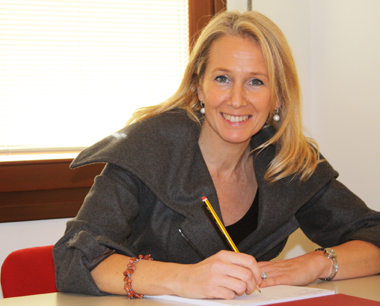Cassazione civile, I Sezione, ordinanza n. 28723/2020 del 16.12.2020 Tutela effettiva del diritto alla bigenitorialità del minore – art. 8
La Corte d’Appello di Firenze, a seguito di una consulenza tecnica d’ufficio disposta al fine di valutare la capacità genitoriale della madre e la possibilità di ripresa dei rapporti del padre con il figlio, ha ritenuto l’adeguatezza della capacità genitoriale della madre e ha affermato che non era necessario disporre l’affidamento del minore ai S.S. al fine di consentire di ipotizzare una ripresa dei rapporti padre-figlio.
La Corte di legittimità, nel valutare il caso, ha ribadito che il rispetto del “principio della bigenitorialità” deve intendersi, come più volte interpretato dalla giurisprudenza della Corte Edu in relazione all’art. 8, anche come rigoroso controllo, delle autorità giudiziali nazionali, sulle restrizioni supplementari, ovvero su quelle eventualmente apportate dai giudici al diritto di visita dei genitori.
I giudici di Strasburgo hanno inoltre precisato che, per garantire effettività della vita privata o familiare nei termini di cui all’art. 8 CEDU, non si limitano al controllo che il bambino possa incontrare il proprio genitore o avere contatti con lo stesso, ma includono l’insieme delle misure preparatorie che, non automatiche e stereotipate, permettono di raggiungere questo risultato
La Corte di Cassazione cassa quindi la sentenza e rimanda alla stessa Corte d’Appello la valutazione del caso.
La Corte di Cassazione ha così precisato l’esigenza di una effettiva e concreta tutela del diritto del minore alla bigenitorialità, e del divieto in capo ai giudici nazionali di utilizzare formule stereotipate ed automatiche o di confermare acriticamente provvedimenti già adottati in I grado.
Tornando al caso di specie, la Corte d’Appello di Firenze aveva ,quindi, omesso completamente di prendere in esame gli elementi quali la condotta oppositiva della madre, gravemente lesiva del diritto del minore alla bigenitorialità, e non aveva evidenziato le ragioni di incapacità del padre di prendersi cura del figlio o le ragioni del rifiuto del padre da parte del minore, non aveva provveduto neanche all’ascolto del minore.
The Court of Appeal of Florence, following a technical expert’s report ordered to assess the mother’s parental capacity and the possibility of a resumption of the father’s relationship with the child, found that the mother’s parental capacity was adequate and stated that it was not necessary to order the custody of the child to the S.S. in order to allow the possibility of a resumption of the father-child relationship.
The Court of Legitimacy, in assessing the case, reiterated that the respect of the “principle of bigenitoriality” must be understood, as repeatedly interpreted by the case-law of the ECHR in relation to Article 8, also as a strict control, by the national judicial authorities, on the additional restrictions, or on those possibly made by the courts on the parents’ right of access.
The Strasbourg judges also made it clear that, in order to guarantee the effectiveness of private or family life in the terms of Article 8 ECHR, they do not confine themselves to checking that the child can meet his or her parent or have contact with him or her, but include all the preparatory measures which, not automatic and stereotypical, enable this result to be achieved
The Court of Cassation therefore reversed the judgment and referred the case back to the Court of Appeal.
The Court of Cassation thus clarified the need for effective and concrete protection of the child’s right to co-parenting, and the prohibition for national courts to use stereotyped and automatic formulas or to uncritically confirm measures already adopted at first instance.
Returning to the present case, the Court of Appeal of Florence had therefore completely failed to examine elements such as the mother’s oppositional conduct, which was seriously detrimental to the child’s right to bigenitoriality, and had not highlighted the reasons for the father’s inability to take care of the child or the reasons for the child’s refusal of the father, and had not even listened to the child.

